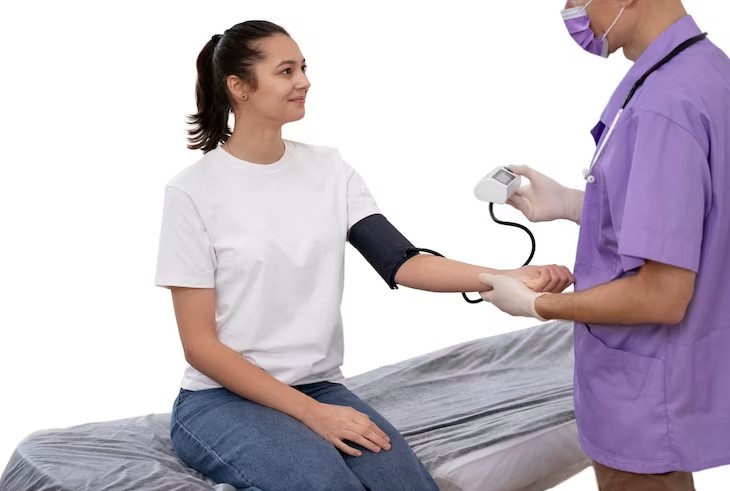Introduction:
The first visit to a family care doctor is a crucial step in establishing a healthcare relationship. In this article, we will explore what to expect during your initial appointment, from preparing beforehand to the various aspects of the visit. Understanding these expectations will help you approach your first visit with confidence and ensure a productive and positive experience.
Preparing for the First Visit:
Before your appointment, it's important to gather and organize your medical history, including any previous diagnoses, medications, allergies, and surgical procedures. Additionally, make a list of any questions or concerns you wish to discuss with your doctor. Verify your insurance coverage and complete any necessary paperwork to streamline the check-in process.
Checking-In and Initial Intake Process:
Upon arrival at the doctor's office, you will be greeted by the front desk staff who will guide you through the check-in process. You will be asked to provide personal information and may need to complete medical history forms. This information helps the doctor understand your health background and tailor their approach accordingly. It's also an opportunity to discuss privacy and confidentiality policies to ensure your information remains secure.
Meeting the Family Care Doctor:
Once you are checked-in, you will have an initial conversation with the family care doctor. This is an opportunity to introduce yourself, establish rapport, and discuss your expectations for the visit. Open and honest communication is key to building a comfortable doctor-patient relationship from the start.
Medical History Review:
During your first visit, the doctor will review your medical history in detail. This includes discussing any pre-existing conditions, allergies, medications, and previous surgeries. Be prepared to provide accurate and detailed information to help the doctor understand your health status comprehensively. Additionally, the doctor may inquire about your family medical history to identify any potential hereditary risks.
Physical Examination:
A comprehensive physical examination is typically conducted during the first visit. The doctor will measure your vital signs, such as blood pressure, heart rate, and temperature. They will also assess your general health and conduct specific examinations based on your concerns or symptoms. The physical examination helps the doctor evaluate your overall well-being and identify any immediate health issues.
Discussion and Assessment:
Following the physical examination, you will have an opportunity to discuss any questions, concerns, or symptoms you have. The doctor will listen attentively and provide explanations or clarifications as needed. They will share their initial assessment and potential diagnoses, taking into consideration the information gathered from your medical history and examination.
Preventive Care and Screening:
Family care doctors prioritize preventive care. During your first visit, the doctor will discuss the importance of preventive measures, such as vaccinations and screenings. They will determine which preventive care measures are appropriate for your age, gender, and specific health needs. Establishing a schedule for future preventive care visits ensures that you stay on track with maintaining your health.
Referrals and Additional Tests:
If your condition requires specialized care, the family care doctor may refer you to a specialist. They will explain the reasons for the referral and provide you with necessary information, such as the specialist's contact details and any required paperwork. In some cases, the doctor may recommend additional diagnostic tests or imaging to gather more information about your health.
Prescription and Medication Discussion:
If the doctor determines that medication is necessary, they will discuss the prescription with you. This includes explaining the purpose of the medication, potential side effects, and proper usage instructions. If you are already taking medications, the doctor will review and potentially make adjustments to your current regimen. They will also provide guidance on obtaining refills and choosing a pharmacy for convenience.
Patient Education and Health Promotion:
Part of the family care doctor's role is to educate patients on healthy lifestyle choices and disease prevention. During your first visit, the doctor may provide information on topics such as nutrition, exercise, stress management, and disease prevention strategies. They may also recommend resources, such as reputable websites or educational materials, to further support your health-related knowledge.
Follow-up and Next Steps:
Before concluding your first visit, the doctor will discuss follow-up appointments, if necessary. They will explain the preferred method of communication for any future concerns or questions. It's important to clarify any instructions regarding medication adherence, lifestyle modifications, or self-care practices. By reviewing the next steps, you can leave the appointment with a clear understanding of what to expect moving forward.
Conclusion:
The first visit to a primary care physicians sets the foundation for a long-term healthcare relationship. By knowing what to expect and adequately preparing, you can make the most of this initial appointment. Be proactive in sharing your medical history, discussing concerns, and engaging in open dialogue with your doctor.


No comments yet